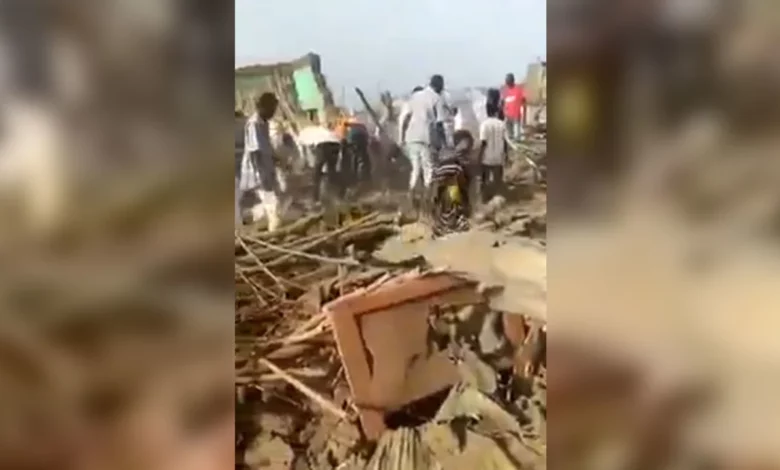
At least 25 houses were destroyed in the airstrike that hit the Yarmouk district, the ministry said on its Facebook page, where they posted a video showing residents pulling out dead bodies from under the rubble.
The paramilitary Rapid Support Forces (RSF) accused the Sudanese Armed Forces (SAF) of the airstrikes on the Mayo, Yarmouk and Mandela neighborhoods in Khartoum, RSF said on social media.
Earlier Saturday, the US and Saudi Arabia announced the two warring factions have agreed to a 72-hour ceasefire in Sudan, the US Embassy in Khartoum and the Saudi foreign ministry said in a joint statement. The ceasefire would begin Sunday at 6 a.m. Khartoum time, the statement said. The two groups agreed to refrain from military strikes and allow “the unimpeded movement of and delivery of humanitarian assistance,” according to the statement.
“The parties agreed that during the ceasefire they will refrain from prohibited movements, attacks, use of military aircraft or drones, artillery strikes, reinforcement of positions and resupply of forces, and will refrain from seeking military advantage during the ceasefire,” the statement said.
The joint statement suggested that peace talks facilitated by the US and Saudi Arabia could be disbanded if the ceasefire isn’t honored.
RSF published a statement on social media affirming their “full commitment” to the ceasefire announced by US and Saudi Arabia “to serve the purposes of the humanitarian truce, especially facilitating the delivery of humanitarian aid to civilians, visiting public facilities such as hospitals, water and electricity stations in order to repair and restart them and open safe passages for citizens.”
SAF has not commented on the ceasefire agreement.
The agreement is the latest ceasefire agreement in the ongoing conflict between the two Sudanese paramilitary groups that forced US diplomatic staff to evacuate Sudan in April.
The previous ceasefires haven’t stopped the fighting between rival factions.
More than 3,000 people have been killed and 6,000 wounded across Sudan since violent clashes erupted between the SAF and RSF on April 15, Sudan’ Health Minister Haitham Ibrahim told Saudi-owned al-Hadath News Television Saturday.
There are many additional deaths and injuries that are not included in initial reports, as health officials “are unable to reach hospitals due to the difficulty of movement and the security situation in the country,” the Khartoum health ministry said in a report Thursday.
All hospitals in the state of West Darfur have completely stopped providing health services except for a few mobile health clinics, Ibrahim told al-Hadath. Out of 130 hospitals in Khartoum, about 40 hospitals are currently operating, but the rest have stopped due to ongoing deadly clashes.
Months of fierce fighting across Sudan has left hopes for a peaceful transition to civilian rule in tatters. Forces loyal to two rival generals – Sudan’s military ruler and head of the army Abdel Fattah al-Burhan and General Mohamed Hamdan Dagalo, chief of the RSF – are vying for control, and as is so often the case, civilians have suffered the most.
Since mid-April, al-Burhan has largely waged his offensive from the sky, bombarding RSF positions in residential areas and inflicting a civilian death toll.
Meanwhile, Dagalo has strengthened his tactical military positions by driving civilians out of their properties and employing the well-worn playbook developed in Darfur: Kill, terrorize and expel.
Reports of atrocities committed by RSF fighters and their allied militias, clearly identified by their uniforms, are consistent across dozens of testimonies. They include arbitrary killings, the wholesale destruction of vital civilian infrastructure, the looting of homes and hospitals, and even mass rapes.
More than 1.67 million people in Sudan have been internally displaced, and over 460,000 have been displaced to neighboring countries as fighting enters its third month, the United Nations High Commissioner for Refugees said in a report published Tuesday.




